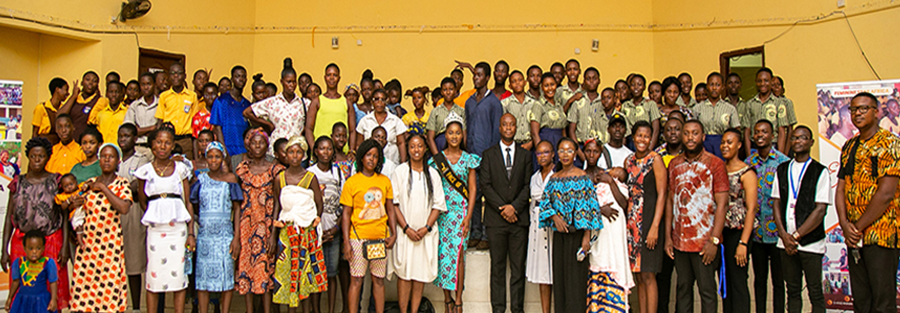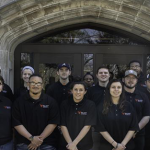The purpose of this article is to consider elements of our success in building authentic relationships as a team of university and community members that developed a community of practice aimed at anti-racism education and activism. Our team co-created a field trip to develop and assess anti-racism and activism in Indiana. As we consistently met, our relationships deepened, which yielded deeper conversations about race and racism. Using critical reflection as our guide, we invoke the metaphor of weaving to explain how these processes were integral to the development of relationships within our community of practice. Warp threads represent the structures we put in place to create and maintain the structure of our CoP: a) sustained commitment; b) creation of working agreements; c) purposefully getting to know one another; and d) reflection about our process. These elements supported our weft threads: the dialogue, sharing, and listening, developed through trust and open conversation, which strengthened our relationships. These processes have potential to be elements of success for those interested in creating communities of practice with similar goals.
The purpose of this article is to consider elements of our success in building authentic relationships as a team of university and community members. These relationships served as the foundation for our community of practice to develop and assess a project we created to engage in antiracism education and activism. We draw from Bryant and Arrington (2022) who define antiracism as “actively and intentionally working to counter racism across the many levels in which it can manifest” (p. 23). Antiracism activism requires a personal commitment to raising awareness of racism, increasing knowledge and shifting mindsets, and taking action within one’s sphere of influence. These actions are situated within critical consciousness. In the context of our project which focused on anti-Black racism (the systematic oppression of Black people throughout all aspects of society), critical consciousness promotes understanding of the harm that anti-Black racism causes and how individuals advance from being aware of anti-Black racism to engaging in actions to prevent and resist racial trauma (Bryant & Arrington, 2022; Mosley et al., 2021). As racism can take place across interpersonal, cultural, and institutional spheres, anti-racism activism may be enacted across those spheres.


